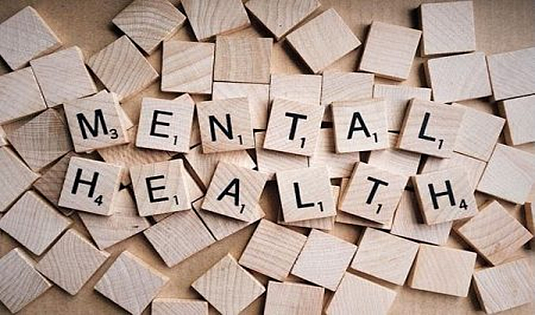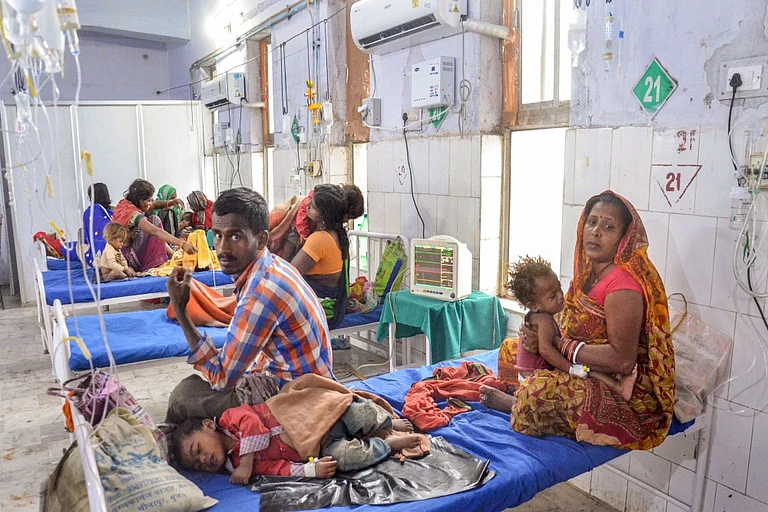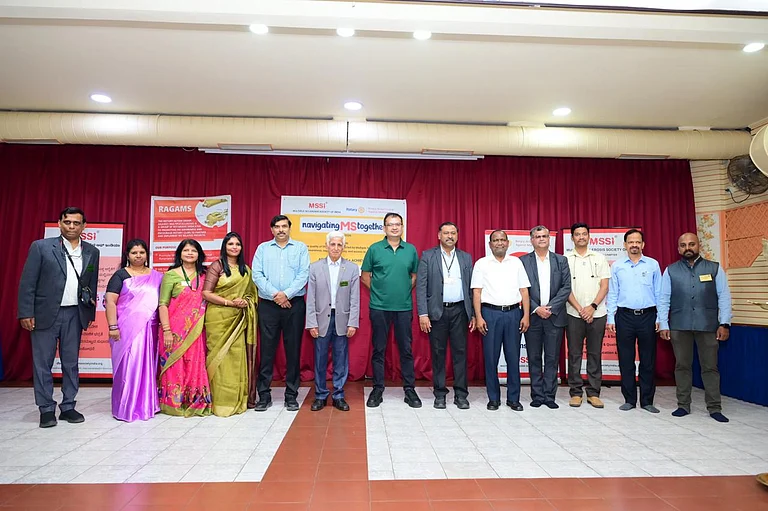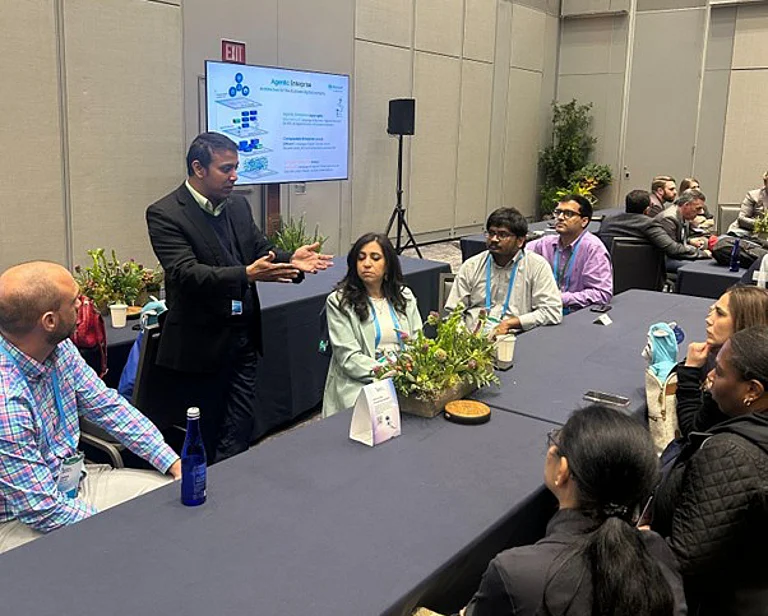The demand for mental health care is increasing day by day in India, thanks to a shift in attitudes over the years. Also, mental health awareness and treatment have gained traction worldwide, with digital health technologies emerging as essential tools. As the mental health burden continues to rise globally, the integration of technology into mental health is becoming crucial. India is witnessing remarkable advancements in this area, supported by government initiatives to improve accessibility and affordability. Additionally, India is emerging as a preferred destination for foreign patients seeking mental health treatment due to its robust infrastructure, affordable services, and skilled professionals.
Why India?
India's medical tourism excels with globally skilled doctors, language competency, cost-effectiveness, and cutting-edge technology, making it a top destination for healthcare seekers. India has become a favoured destination for mental health treatment, attracting foreign patients due to several factors:
Affordable treatment costs
Mental health treatments in India are cost-effective compared to Western countries. Whether it's therapy sessions, psychiatric care, or advanced mental health diagnostics, patients can receive quality care at a fraction of the cost. According to a report, 31% of Americans feel mental health treatment is financially out of reach for them. The report further said Americans spend an average of $1,080 a year ($90 per month) on mental health treatment, accounting for 5% of their total monthly income, also they spend an average of two years seeking the correct mental health expert. For roughly a third of patients, insurance did not cover their treatment costs, making it difficult to afford care. The average cost of therapy sessions in India will be Rs 1000 to Rs. 4000 and is affordable enough for foreign patients to invest in India for mental healthcare.
Experienced and skilled professionals
India boasts a pool of highly trained mental health professionals, including psychiatrists, psychologists, and counsellors with expertise in treating diverse mental health conditions. Many professionals are fluent in English, making communication easier for international patients.
Use of holistic and integrative approaches
Indian mental health care often includes integrative approaches combining conventional therapy with holistic practices like yoga, Ayurveda, and mindfulness. This unique blend appeals to international patients seeking comprehensive and culturally enriched treatment options.
Digital Access and Continuity of Care
Through teletherapy and mental health apps, foreign patients can maintain continuity of care even after returning to their home countries. India’s digital infrastructure allows for ongoing consultations, follow-ups, and support. In a report, it is mentioned that over 20% of Americans say mental health options are inaccessible in their location.
Cultural Sensitivity and Community Support
India’s cultural diversity and acceptance of various therapeutic approaches make it a welcoming destination for patients from different backgrounds. Community support systems within mental health frameworks in India are also well-established, fostering a comfortable environment for foreign patients.
Waiting times
According to a report by the Tebra study, wait times for mental health visits varied greatly among responders as well. The majority of respondents (34%) reported waiting 1-2 weeks for an appointment. More than a quarter (28%) had wait times of less than a week, with 23% waiting 2-4 weeks. A smaller but significant 16% experienced waits of more than four weeks. While in India, the patient gets immediate response in mental health appointments. There are no issues with insurance, the number of sessions, or documentation, which makes India a perfect destination for medical tourism.
Government Initiatives Supporting Digital Mental Health in India
The Indian government has recognized the importance of mental health and has launched multiple initiatives to improve access to digital mental health solutions.
TeleMANAS: The government has taken a pretty strong approach to digital mental health. In October 2022, the government established a tele-mental health program (Tele MANAS) to enable 24/7 remote access to mental healthcare. TeleMANAS has 51 cells and has received over 4 lakh calls thus far.
National Mental Health Programme (NMHP): The Government of India in 1982 began the National Mental Health Programme (NMHP) to ensure the availability and accessibility of basic mental health care for all in the near future. Through this program, the government promotes telepsychiatry and digital solutions, especially for rural and underserved communities.
National Digital Health Mission (NDHM): Under the NDHM, the government focuses on creating a digital health ecosystem. By integrating mental health records, telemedicine platforms, and digital prescriptions, NDHM enables easy access to mental health services and fosters continuity of care.
Manodarpan Initiative: As part of the Atmanirbhar Bharat Abhiyan, the Manodarpan initiative addresses the mental health needs of students. The initiative started during covid 19, to provide tele-counselling to students, teachers and parents across schools, colleges and universities to address their psychosocial issues. It provides counselling support, mental health resources, and a national helpline, utilizing digital platforms to reach a broad audience.
Ayushman Bharat Digital Mission (ABDM): ABDM plays a vital role in enhancing digital infrastructure for health services, including mental health. By creating a digital repository of patient records and integrating telemedicine platforms, ABDM promotes efficient mental health care delivery.
Integration of Mental Health with Telemedicine Guidelines: In 2020, the Indian government expanded telemedicine guidelines to include mental health services, enabling licensed mental health professionals to provide remote consultations and prescriptions, and supporting patient access to quality care across regions.
Mental health tech innovations in India
AI-driven mental health diagnostics: AI and machine learning are being leveraged to diagnose mental health conditions early. Algorithms analyze patients' responses and behaviours, helping mental health professionals provide tailored interventions. Some tools monitor social media behaviour, speech patterns, and even facial expressions to gauge emotional states. Panacea Infosec, an Indian cybersecurity consultant, and Panacea Bioedge, a human resource research and development agency, have teamed with Healmed Solutions, a mental health tech company in the United States, to create an AI-powered online mental health platform in India.
Teletherapy and E-Counseling Platforms: Teletherapy has revolutionized accessibility to mental health services, particularly in remote areas. Platforms like Amaha offer AI-driven chatbots alongside human therapist consultations. These tools provide users with real-time support, interactive exercises, and coping strategies.
Virtual reality (VR) for exposure therapy: VR tools are making inroads into treating anxiety and PTSD by simulating controlled environments where patients can confront their fears safely. XRHealth and other VR-based platforms help patients reduce anxiety by gradually exposing them to stressful situations in a controlled virtual space.
Wearable devices and biometric tracking: Wearables that monitor physiological data (e.g., heart rate, sleep patterns) offer insights into stress levels, helping individuals and professionals monitor mental health in real time. These devices, often integrated with mental health apps, provide actionable insights and suggestions to maintain mental wellness.
Digital therapeutics and mobile apps: Apps for cognitive-behavioural therapy (CBT), mindfulness, and mental health self-assessments. In India, initiatives like MindPeers use digital therapeutics to provide structured programs, including CBT, meditation, and other mental health support.
Mental health chatbots: Chatbots like Wysa use AI to provide 24/7 mental health support, offering conversations, exercises, and crisis support. These bots are particularly effective for those reluctant to approach therapists or those needing immediate help outside traditional consultation hours. In India, Fortis Healthcare has launched an AI-powered chatbot to aid people dealing with mental health issues. The software, called "Adayu Mindfulness," provides psychological support similar to a first aid kit, specifically suited for those who are unwilling to seek professional help owing to societal stigma.
Digital journaling and mood tracking: Several platforms offer digital journaling and mood tracking, enabling users to record their emotions, set goals, and track progress over time. By analyzing patterns, these tools help users and therapists make informed decisions about treatment approaches. For example, Grid Diary, Happyfeed, Five Minutes Journal, etc. integrates your weekly, monthly, and yearly diaries and allows you to create your own journaling and planning system. Write down one line at the end of each day and ponder on it when you have time. Also, these apps help you to think and focus on the areas of life you want to track so that you can flourish.
Mental health tech innovations and government initiatives in India are shaping a promising future for mental health care, enhancing accessibility, affordability, and quality. India's appeal as a destination for foreign patients seeking mental health treatment is rooted in its affordability, expertise, and integrative approach, which resonates with a global patient base. As mental health continues to be a crucial aspect of overall health, these advancements underline India's commitment to comprehensive, inclusive, and tech-enabled mental health services.



























